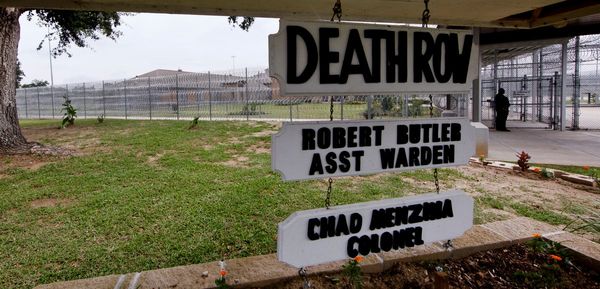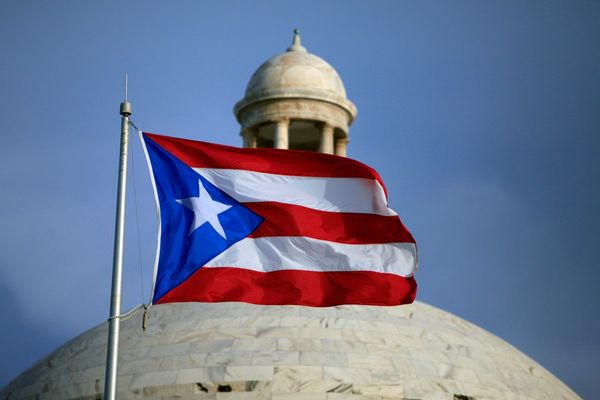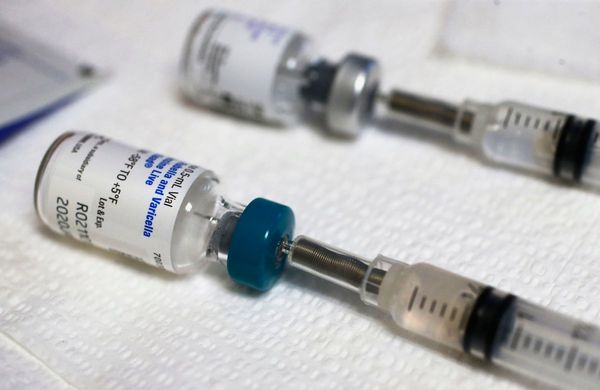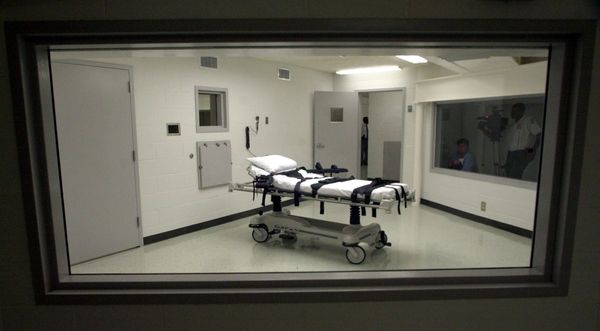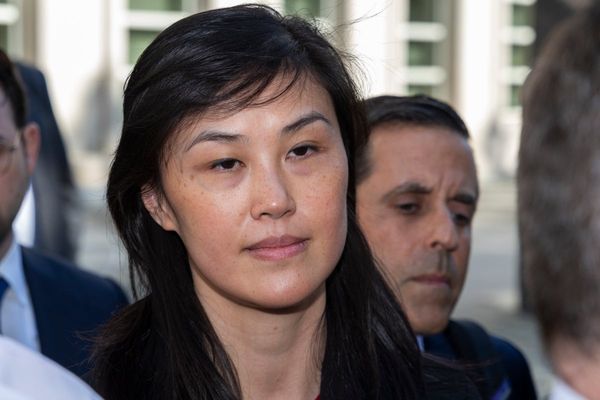
Emmanuel Macron implored Vladimir Putin to let civilians flee Ukraine’s besieged cities during a marathon call of nearly two hours as a second attempt to evacuate the port city of Mariupol ended under Russia bombardment.
The appeal from Paris was echoed in a separate call between Putin and Turkey’s president, Recep Tayyip Erdoğan, while Ukraine’s president, Volodymyr Zelenskiy, spoke directly to Russian citizens in a video address beseeching them to not “keep silent” amid the bloodshed.
“Citizens of Russia – for you, this is a struggle not only for peace in Ukraine, this is a fight for your country,” Zelenskiy said in a televised address, switching from Ukrainian to Russian. “If you keep silent now, only your poverty will speak for you later. And only repression will answer.”
Russians now face a choice “between life and slavery”, Zelenskiy said.
It had been hoped that 200,000 of the 430,000 residents in Mariupol would be able to escape the bombed out city during an agreed nine-hour ceasefire on Sunday, but only a few hundred people are believed to have made it out.
The International Committee of the Red Cross implored the two sides to renegotiate.
It said: “Amid devastating scenes of human suffering in Mariupol, a second attempt today to start evacuating an estimated 200,000 people out of the city came to a halt.
“The failed attempts yesterday and today underscore the absence of a detailed and functioning agreement between the parties to the conflict.
“For the safe passage of civilians to happen with the required levels of trust, the parties should agree between themselves not just in principle but also on the details and parameters.”
During a tense call with Putin in which Macron had also emphasised the need to avoid disaster at Ukraine’s nuclear power sites after the shelling of the Zaporizhzhia plant by Russian forces last week, France’s president reiterated the west’s demand that civilians be given safe passage.
“The [humanitarian] situation is difficult” in Mariupol, a French official said. “Our demands remain the same: we want Russia to respond to these demands … very quickly and clearly.”
The director general of the International Atomic Energy Agency IAEA, Rafael Mariano Grossi, said on Sunday that he was “extremely concerned” about evidence of Russian interference at the running of the Zaporizhzhia site, Europe’s biggest nuclear plant.
Ukrainian staff members were being required to seek approval for any operation, including maintenance, he said, and normal communications were being impeded through switching off some mobile networks and internet access at the site.
Grossi said that for the plant to operate safely, “staff must be allowed to carry out their vital duties in stable conditions, without undue external interference or pressure.”
According to the Kremlin, the Russian president had reassured Macron of the safety at the nuclear sites controlled by his forces and had agreed to talks with the IAEA over securing the facilities.
Macron tweeted: “I spoke with President Putin and then with President Zelensky. We are striving to preserve the integrity of Ukraine’s civilian nuclear plants, in addition to other priority demands we presented to Russia: a ceasefire and the protection of civilians.”
Macron also spoke with Putin of his concern about the Russian leader’s plans for Odesa, Ukraine’s third biggest city, outside which a fleet of Russian warships have been gathering.
But the Kremlin said Putin had pinned the blame for the failure of the ceasefire to hold in Mariupol and neighbouring Volnovakha on “Ukrainian nationalists”.
Putin “drew attention to the fact that Kyiv still does not fulfil agreements reached on this acute humanitarian issue”, the Kremlin said. “And the pause in hostilities was again used only to build up forces and means in their positions.”
Anton Gerashchenko, an official in Ukraine’s interior ministry, said:
“There can be no ‘green corridors’ because only the sick brain of the Russians decides when to start shooting and at whom.”
Attempts to get residents out of Mariupol, where medicines and food are running short and people are living in in freezing conditions with no heating, had first failed on Saturday after Ukrainian authorities claimed the Russians reneged on an agreement to stop their shelling. The Russian government had claimed Ukrainian nationalists had prevented people from fleeing.
Ukraine’s deputy prime minister, Olha Stefanishyna, had said earlier on Sunday that she did not trust the Kremlin’s word but spoke of her hope that the International Red Cross would step up to secure the safety of Ukrainian citizens.
The British deputy prime minister, Dominic Raab, had also voiced his doubts about the trustworthiness of the Russian assurances. “We need to be very careful in testing assurances that Vladimir Putin gives,” he said.
A third round of talks between Russia and Ukraine will take place on Monday at an undisclosed location. But hopes of a diplomatic breakthrough remain low.
Zelenskiy expressed his rage on Sunday at the lack of western support and reiterated his calls for Nato to police a no-fly zone to prevent Russian bombardments.
“The world is strong enough to close our skies,” he said.
The chief of the defence staff, Adm Sir Tony Radakin, the head of the British armed forces, said he believed that a no-fly zone would not be of assistance to Kyiv.
“The no-fly zone would not help,” he said. “Most of the shelling is coming from artillery, most of the destruction is coming from artillery. It’s not coming from Russian aircraft.
“If we were to police a no-fly zone, it means that we probably have to take out Russian defence systems and we would have Nato aircraft in the air alongside Russian aircraft, and then the potential of shooting them down, and then that leads to an escalation.”
Asked if it was inevitable that Russia takes over Ukraine, Radakin said: “No. I think we’ve seen a Russian invasion that is not going well. I think we’re also seeing a remarkable resistance by Ukraine, both its armed forces and its people.”
Joe Biden’s administration said it was working with Poland’s government on a deal to provide Ukraine with Polish fighter jets.
Under the tentative agreement, Ukraine would receive Russian-made warplanes from Warsaw, which would in turn be provided with replacement F-16s by the US. Ukrainian fighter pilots are trained to operate the Russian planes.
On a visit to Moldova, the US secretary of state, Antony Blinken, told reporters: “We are looking actively now at the question of airplanes that Poland may provide to Ukraine and looking at how we might be able to backfill should Poland decide to supply those planes. I can’t speak to a timeline, but I can just say we’re looking at it very, very actively.”
During a call on Sunday, Boris Johnson also told Zelenskiy that he would work with international allies to obtain more defensive military equipment.
In response, the Russian military warned Ukraine’s neighbouring countries against hosting warplanes that would be used in the conflict, saying Moscow may consider such states as being a part of the war.
Russia’s defence ministry spokesperson, Igor Konashenkov, claimed on Sunday that Ukrainian combat planes had already redeployed to Romania and other neighbouring countries.
He claimed that if those warplanes attacked Russian forces from the territory of those nations it “could be considered as those countries’ engagement in the military conflict”.
Blinken said the US and the EU were also exploring banning Russian oil imports as the west looked to tighten its restrictive measures on Moscow.
“We are now in very active discussions with our European partners about banning the import of Russian oil to our countries, while of course, at the same time, maintaining a steady global supply of oil,” he said.
Meanwhile, the World Health Organization said there had been several attacks on Ukrainian healthcare facilities, which had caused multiple deaths and injuries.
Tedros Adhanom Ghebreyesus, the director general of the WHO, tweeted: “Attacks on healthcare facilities or workers breach medical neutrality and are violations of international humanitarian law.”
The Russian government has repeatedly denied that it is targeting civilian areas.
